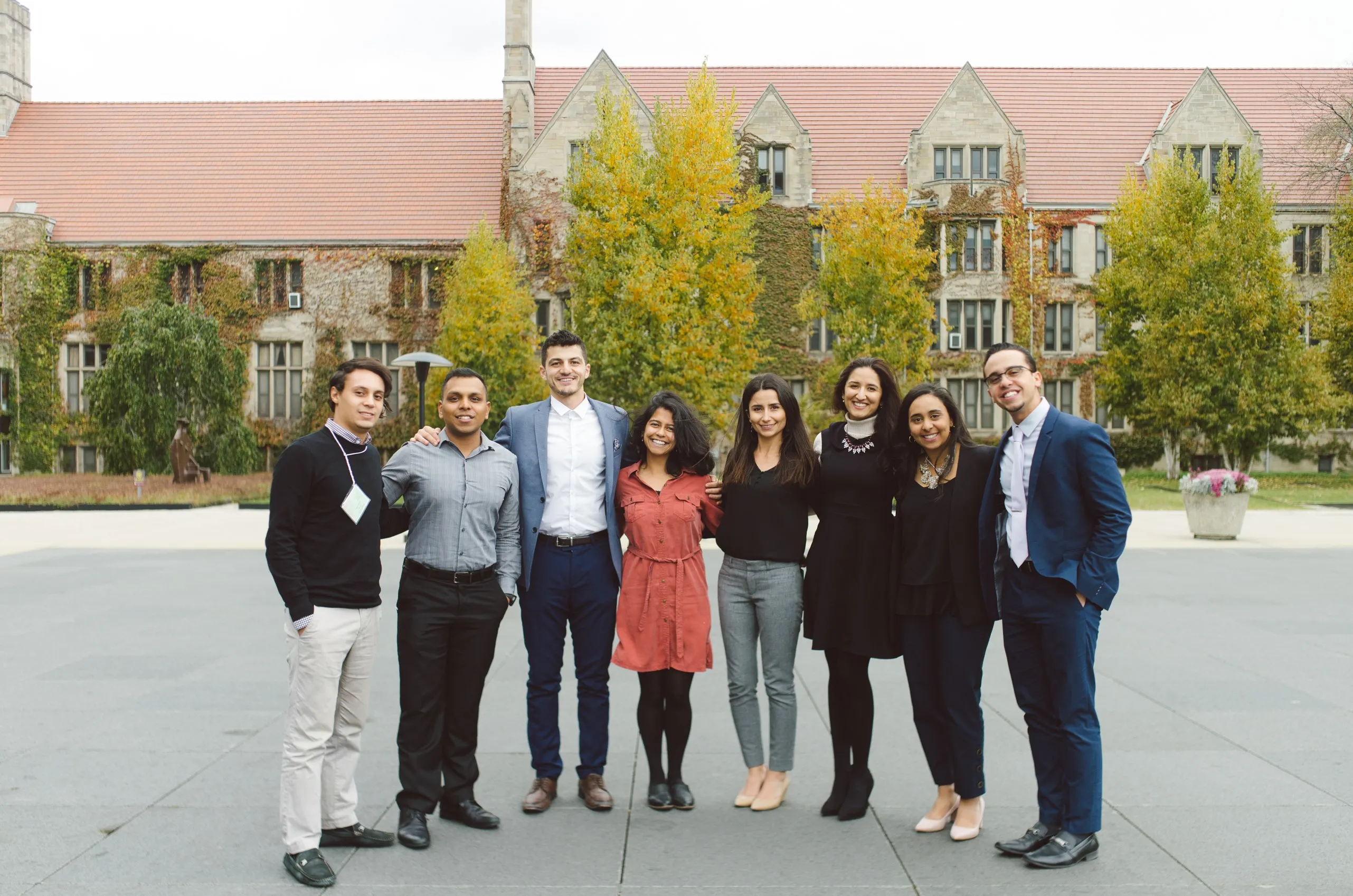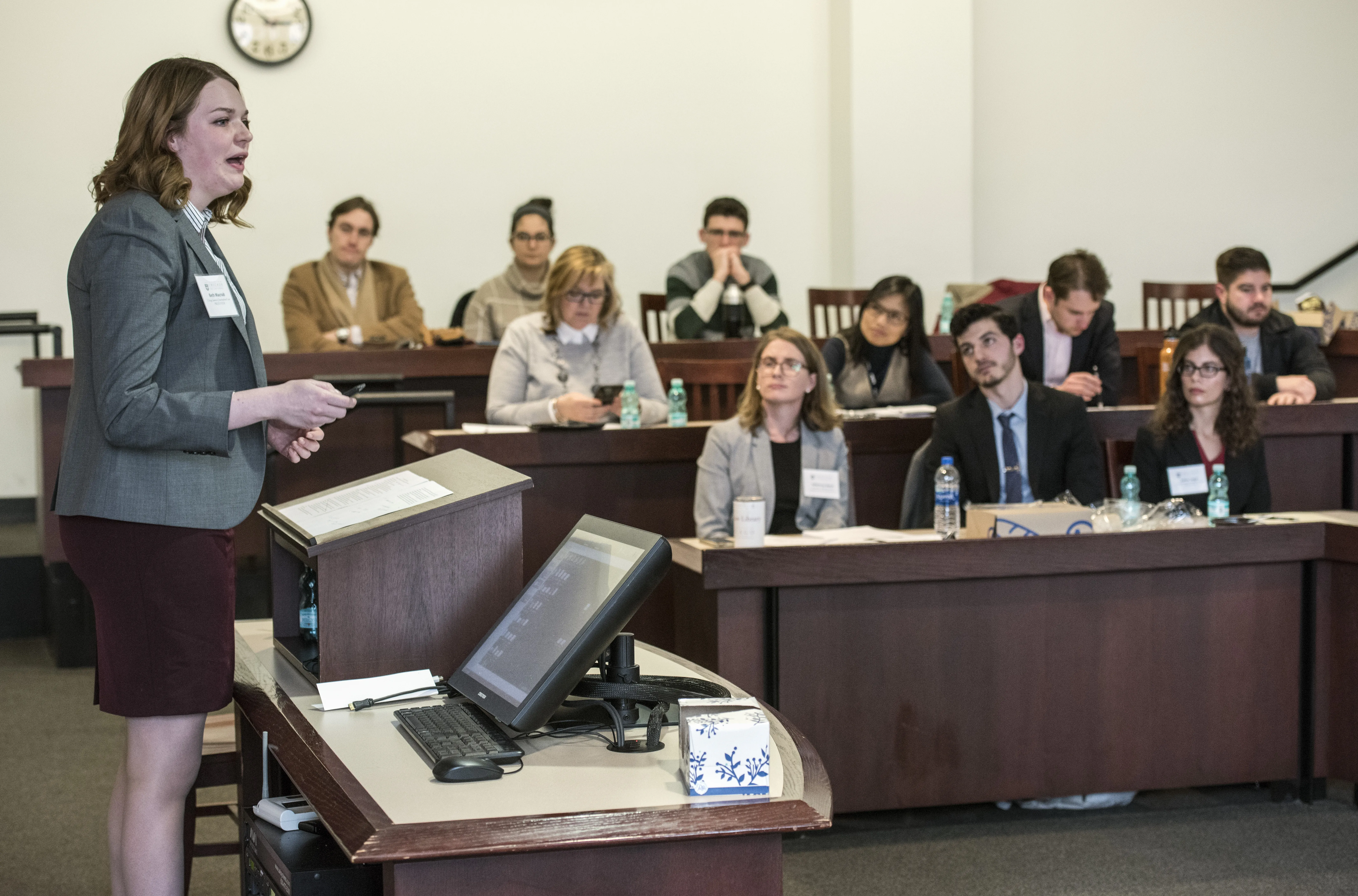Bringing Clarity to Rule of Law

Leading scholars on the rule of law gathered at the Law School earlier this month for the inaugural conference of the World Justice Project Rule of Law Research Consortium, which was designed to bring clarity to an elusive concept.
The “rule of law” — despite its association with good governance, democracy, and growth, and its frequent appearance in development programs — is still an imprecise idea, Deputy Dean Tom Ginsburg said in his introductory remarks. Ginsburg, the Leo Spitz Professor of International Law and the Ludwig and Hilde Wolf Research Scholar, organized the conference and is co-chair of the Research Consortium.
“Never in the history of foreign aid has so much money been spent on such thin conceptual foundations,” he said. “We don’t really know much about what the rule of law is, and we certainly don’t know much about where it comes from or how it’s sustained.”
Panelists with expertise in law, economics, political science, anthropology, and sociology presented on topics ranging from the theoretical concepts of the rule of law, to empirical measurement, to issues of implementation. All the while, presenters and attendees were encouraged to assess the state of research on the rule of law, and to identify theoretical gaps and areas of further inquiry.
Particularly salient is the ongoing debate on the use of indices to measure the rule of law. In one panel, Alejandro Ponce and Juan Carlos Botero, economists for the World Justice Project, discussed their own work on the World Justice Project Rule of Law Index. Ponce detailed the methodology behind the Index, which after years in preparation released its fourth annual report earlier this year. His presentation also highlighted ways in which the Index, which reflects more than 500 questions asked to some 100,000 citizens and 2,500 experts in 99 countries, has been used by governments around the world.
Not all the panelists were as enthusiastic.
After pointing out some of the benefits of using indicators, Professor Sally Engle Merry, Silver Professor of Anthropology at New York University, listed some of their costs. In producing a global indicator, she asserted, measurers must go through "processes of categorization, organization of material, and commensuration, all of which inevitably lead to simplification, to homogenizing the object of analysis, to decontextualizing the object of analysis, and to presenting as individual things that may be better understood in holistic terms."
Assistant Professor Adam Chilton countered that. “These aren’t reasons to be pessimistic about data or to be skeptical about data," he said. "They’re reasons to demand more data.”
He further reminded attendees that indices and data can be useful, despite their shortcomings.
“It’s true that data itself is a generalization of phenomena, but we have to compare it to the alternative,” he said. “The alternative is anecdotal evidence that is biased as well.”
Chien-Chih Lin, JSD ‘15, attended both days of the conference because he is interested in both rule of law issues and empirical studies.
“Specifically, being a Taiwanese student who studies constitutional law in the U.S., concepts such as ‘Asian values,’ or ‘rule of law with Chinese characteristics’ are very puzzling. Therefore, determining what rule of law is, and how to evaluate the degree of rule of law or constitutionalism in different contexts, become important issues to me.”
He also reflected on the work left to be done.
“In the workshop, several papers proposed different theories, discussing the foundations, methodology, measurements, and the findings of rule of law, which really shed some new light on this issue,” he said. “I learned a lot from this wonderful workshop. Nonetheless, or perhaps unsurprisingly, no real consensus is reached, which I think is a good thing, since it only stimulates more thinking.”
The World Justice Project is an independent, non-governmental organization engaging citizens and leaders from different disciplines to advance the rule of law worldwide. The Consortium, a repository of research on the rule of law, is intended to stimulate and spread research on the rule of law into policy spheres. It will include, inter alia, a working paper series, conferences and workshops, and briefs to policy makers.




